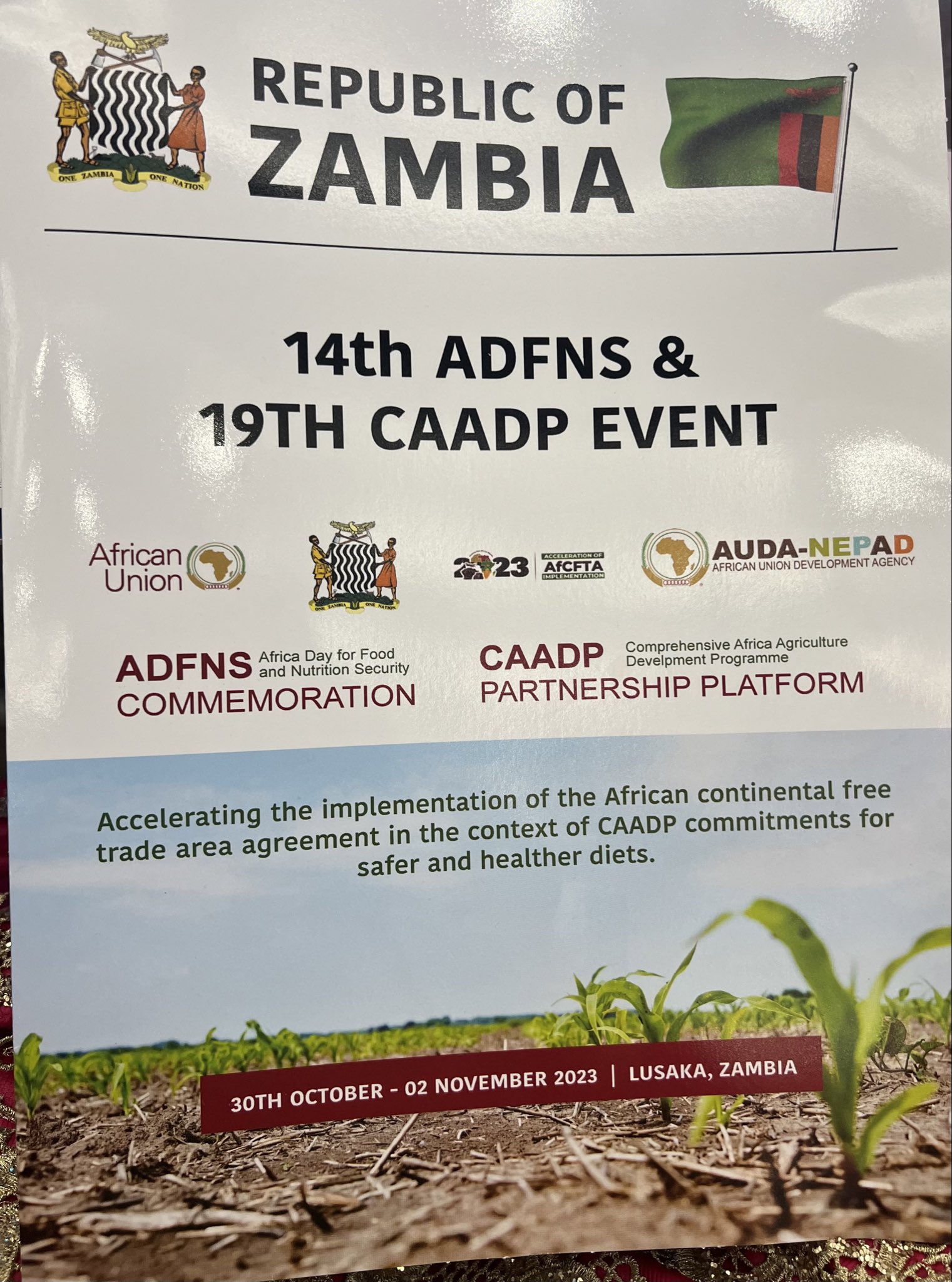|
Getting your Trinity Audio player ready...
|
LUSAKA, ZAMBIA – Japan International Cooperation Agency (JICA’s policy for agriculture development in Africa is transforming the continent in the promotion of food and nutrition security.
In his address during a plenary session at the ongoing 14th Africa Day on Food and Nutrition Security and the 19th Comprehensive Africa Agriculture Development Programme Partnership Platform (CAADP PP) running from 30 October 2023 to 1 November 2023, Izumi Keita, the JICA Senior Representative said the “JICA Africa Food Security Initiative” was launched in 2022 in order to strengthen the resilience of the agriculture sector in the medium to long term in Africa.
He said agriculture in Africa is facing external pressures such as climate change, the Ukraine crisis, and public health threats which all negatively affect global agriculture production, and the continent is quite vulnerable due to the huge dependence on agricultural import products.
“The Initiative supports food security in Africa and is anchored on four perspectives/pillars namely: “Staple Food”, “Farmers’ Empowerment”, “Nutrition Improvement” and “Climate Change Response”. The total target value under this initiative is approximately 1.3 billion USD (190 billion yen) in total.
“Furthermore, I believe we all agree that we cannot talk about agriculture sector development without private investment. Therefore, JICA has also established the USD one billion Facility for Supporting Agricultural Supply Chains and Food Security Enhancement (“SAFE”), to accelerate investments in private companies related to food security,” he said.
To support “Staple Food Production”, JICA, in partnership with AGRA has been implementing an initiative known as the “Coalition for African Rice Development” (CARD) since 2008. Currently, the target is to double rice production, which is 56mil ton/year across 32 counties by 2030. Through this initiative, JICA’s intention is to ensure that Africa is “self-reliant” as far as rice production is concerned.
In terms of “Farmers’ Empowerment”, the Smallholder Horticulture Empowerment and Promotion (SHEP) approach has been expanded to over 30 African countries. This is an agriculture extension approach that aims to change farmers’ mindset from “Grow and sell” to “Grow to sell”.
In other words, this approach aims to inform smallholder farmers that they must take agriculture “as a business”.
In terms of “Nutrition Improvement”, the “Initiative for Food and Nutrition in Africa (IFNA) is a joint initiative led by AUDA-NEPAD and JICA. The initiative has promoted collaborative ways to improve nutrition at the household level across Africa, especially the over 200 million children on the continent.
JICA has supported the Zambian government’s crop diversification agenda, special focus on rice. Not only capacity building on rice production and marketing, JICA is also setting up rice seed production fields through a grant project and is also supporting the implementation of the National Rice Development strategy. This is to enhance sustained “Food availability” in this country.
JICA has also worked with Zambia on Community-based Smallholder Irrigation for more than 10 years, to support “Climate Change Response” and enhance the resilience of farming activities among smallholders, by promoting irrigated agriculture, which is small irrigation systems by utilizing row materials such as straws, branches, stones and other materials that can be obtained in local, which aims to be sustainable.
H.E. Amb. Josefa Sacko, Commissioner for Agriculture, Rural Development, Blue Economy, and Sustainable Environment (ARBE) at the African Union Commission said stakeholders can win the battle against the multiple shocks adversely impacting African agriculture and food systems if they step up their efforts, use the best available evidence and work in partnership leveraging each other’s capacities.
“The Post Malabo Framework that we are embarking upon to present a decennial plan for Africa’s agriculture would hopefully give us an opportunity to critically assess the lessons learned from two decades of CAADP implementation and identify strategies to step up and accelerate the implementation of CAADP for the years to come.
“As many of you are aware, the AU theme for 2023 is ‘’Accelerating the implementation of the African Continental Free Trade Area.” With agri-foods accounting for an estimated 75% of intra-Africa trade, the single market will not only enhance our economies and potentially move our farmers out of the vicious cycle of poverty but will be a major contributor to improving access to food. Creating an enabling environment whether policy measures or capacity building to ensure a reliable supply of safe and nutritious food has no substitute if we are to effectively implement AfCFTA,” Amb Sacco said.
He added that smallholder farmers should not be denied opportunities to connect to expanded market opportunities, including exports so that they can escape from the cycle of poverty. This is why the African Union has introduced the Common Africa Agro Park which will be one of the flagship projects for the Second ten-year implementation plan of Agenda 2023.






